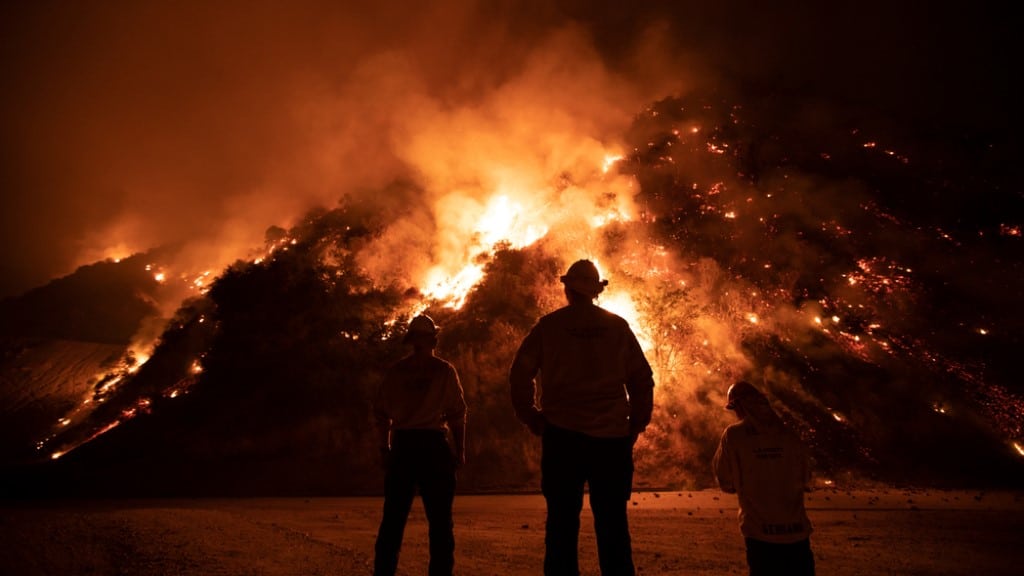Wildland Fire Mitigation and Management Commission presents new report
- September 28, 2023
- 10:34 am


Iain Hoey
Share this content
Summary of the key findings
A recent report has been released by the Wildland Fire Mitigation and Management Commission, shedding light on numerous consensus-based recommendations to the US Congress about the wildfire crisis.
The full report is available here.
Diverse representation and comprehensive insight
The Commission, established by the Bipartisan Infrastructure Law and unveiled in December 2021, was tasked with offering Congress suggestions on refining federal policies surrounding wildland fire mitigation, suppression, and management.
They also focused on the rehabilitation of territories affected by these fires.
Having members from various federal agencies, local and Tribal governments, and the private sector, the Commission has convened monthly over the past year.
The objective was to collaboratively formulate these suggestions.
Strategies for a proactive approach to wildland fire
The Commission’s proposals offer a comprehensive and integrated approach.
Their aim is to transition our response to wildland fires from being reactive to proactive.
The solutions suggest a more sustainable, long-term plan, promoting the development of communities and landscapes that can withstand and adjust to wildland fires.
This will usher the nation towards a transformed relationship with wildfire.
Seven major themes to consider
New Approaches
The wildfire crisis now crosses jurisdictions and ecosystems, impacting infrastructure, public health, and safety. The report suggests a Community Wildfire Risk Reduction Program, among other innovative strategies.
Supporting Collaboration
A collaborative approach involving all relevant entities at every societal level is pivotal.
Shifting from Reactive to Proactive
A significant emphasis on proactive pre-fire and post-fire planning is essential to mitigate the increasing intensity of wildfire risks.
Enabling Beneficial Fire
The expansion of beneficial fires, like prescribed and cultural burning, requires careful balance.
Supporting and Expanding the Workforce
A cross-trained year-round workforce, with a focus on mitigation and recovery, is urgently needed.
Modernising Tools for Informed Decision-making
The report recommends improved coordination of fire-related science and technology.
Investing in Resilience
Sustained and predictable funding is crucial for mitigating risks and impacts both before and after a wildfire.
The importance of the Commission’s work
The Commission’s findings were influenced by both the Department of the Interior’s “Five-Year Monitoring, Maintenance, and Treatment Plan” and the USDA Forest Service’s “Confronting the Wildfire Crisis” strategy.
The collective aim of these plans is to reduce wildfire risk in various territories.
Comments from officials highlight the urgency of action
Secretary of the Interior Deb Haaland remarked: “As climate change drives longer, more intense and more dangerous wildfires, every community across the country is experiencing the impacts—whether from smoke-filled skies or catastrophic losses.
“Under the leadership of President Biden, the Commission’s report will chart a new path forward for the nation on wildland fire mitigation and management, helping to ensure we are building the workforce, resiliency and collaborative approaches needed for the future.”
Agriculture Secretary Tom Vilsack stated: “The Biden-Harris Administration is using every tool available to reduce the risk of catastrophic fire across the nation’s forests and to strengthen our wildfire preparedness, response and recovery efforts to protect communities, critical infrastructure, and natural resources and restore fire-adapted ecosystems, while taking better care of the people serving on the frontlines.
“We are thankful for the commission’s diligent work to prepare a comprehensive set of recommendations that will help drive future solutions in confronting our nation’s wildfire crisis and setting up our workforce for success.”
Secretary of Homeland Security Alejandro N. Mayorkas voiced: “The increasing frequency and intensity of wildfires is a threat to our homeland security.
“The whole of government approach to wildfire prevention, combined with the strategic investments in our workforce recommended by this commission, will ensure DHS personnel remain prepared to go anywhere, anytime extreme weather impacts communities.
“We are investing over $684 million this year to give local fire departments the personnel, tools, training, and resources to meet these challenge and we look forward to continuing this work with our federal partners in the years to come.”
Deanne Criswell, Federal Emergency Management Agency Administrator, added: “The recent disaster on Maui is a tragic reminder of the growing risks of wildfires to communities and the heartbreaking losses they leave behind.
“The detailed recommendations provided by this Commission emphasize the urgent need to work across jurisdictions and disciplines to protect our nation’s residents, communities, and natural resources from fire.
“Together, we will pave a bold new path to wildfire resilience nationwide.”
Michele Steinberg, director of the NFPA wildfire division and Commission member, commented: “Significant changes must be made to better prepare communities from wildfire.
“The final report published by the Commission reinforces the need for these critical actions in both the built and natural environments.”
IFSJ Comment
The release of the Wildland Fire Mitigation and Management Commission’s report presents an informed perspective on a pressing issue faced not only by the United States but globally.
Wildfires have been increasing in intensity and frequency, underlined by the ever-changing climate patterns.
This report’s recommendations come at a critical time when proactive steps are needed more than ever.
The international community stands to gain insights from these findings, which highlight the need for collective, cross-boundary action, enhanced collaboration, and sustainable strategies.
Additionally, the report’s emphasis on workforce support, technological modernisation, and resilience investment provides a roadmap for governments, agencies, and organisations worldwide.
About the Wildland Fire Mitigation and Management Commission
Formed under President Biden’s Bipartisan Infrastructure Law, the Commission’s role is pivotal in offering Congress innovative recommendations on wildland fire management in the U.S.
With members spanning from federal agencies to local governments and the private sector, it draws from a broad spectrum of expertise.
Over the past year, their collective efforts have been channelled towards crafting a comprehensive approach to tackle the nation’s wildfire crisis.



